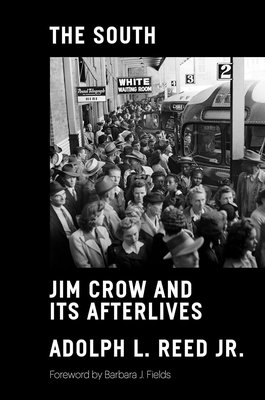Blending personal memoir with historical accounts, this searing history of the Jim Crow South captures the realities of those who experienced it—and shines a light on its enduring legacy. The last generation of Americans with a living memory of Jim Crow will soon disappear. They leave behind a collective memory of segregation shaped increasingly by its horrors and heroic defeat but not a nuanced understanding of everyday life in Jim Crow America. In The South , Adolph L. Reed Jr.—hailed by Cornel West as “the greatest democratic theorist of his generation”—takes up the urgent task of recounting the granular realities of life in the last decades of the Jim Crow South. Reed illuminates the multifaceted structures of the segregationist order. Through his personal history and political acumen, we see America’s apartheid system from the ground up, not just its legal framework or systems of power, but the way these systems structured the day-to-day interactions, lives, and ambitions of ordinary working people. The South is more than a memoir or a history. Filled with analysis and fascinating firsthand accounts of the operation of the system that codified and enshrined racial inequality, this book is required reading for anyone seeking a deeper understanding of America’s second peculiar institution the future created in its wake.






